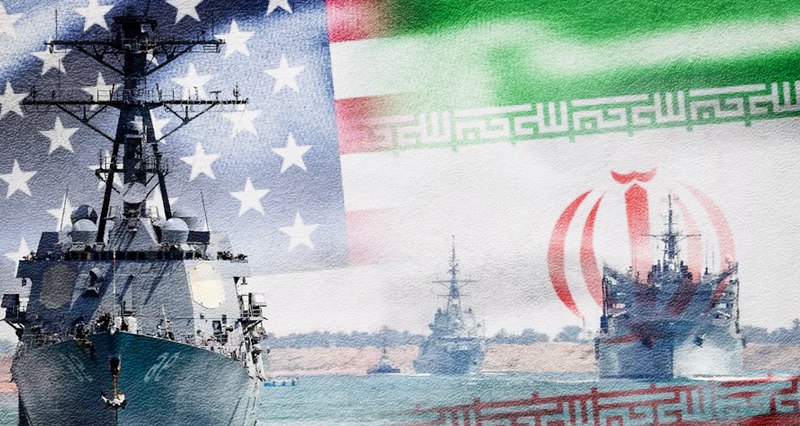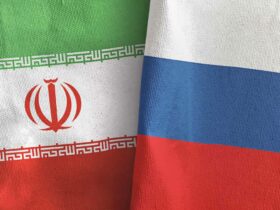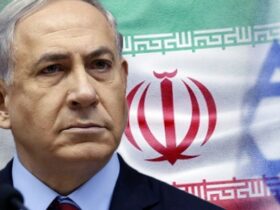May 2018 was a month filled with political disasters for the American policy makers in the Middle East. Pro-Iranian politicians were able to take control of the majority of Lebanese Parliament seats on May 6 followed by anti-American politicians winning in the Iraqi parliament on May 12.
The American side claimed that the late General Ghassem Soleimani was responsible for these losses. There, decision to murder him was a result of their being unable to face his policies on the ground.
While no American low ranking officer dares to step out of American military bases and on to Iraqi soil or any other part of the region, Soleimani traveled freely through the country and knew well how to manage the ground.
Before Americans were able to digest what had happened in the Lebanese elections, even though their Allies (especially Saudi Arabia) sponsored opponents of Iran with millions of dollars, they faced another heavy loss in Iraq.
In Lebanon the “Allies of The Resistance” (pro Hezbollah and Iran) were able to win a majority of seats.
When Iranians noticed that it had become very hard for their Allies to win the majority of seats in Iraq they joined forces with opponents of the US to win a majority there as well.
It didn’t matter to Iran if Iranian Allies won the majority of the Parliament… what was more important was that pro US candidates lost.
The wise #Lebanese nation expressed their comments by voting no to the US & no to Zionists in elections in spite of all dirty dollars that US, Zionists & their regional followers spent to harm #Lebanon:#Iran's Parliament speaker, Larijani. pic.twitter.com/vNN5KJCaUl
— Iran_Newsroom (@Iran_NewsRoom) May 8, 2018
Not to anger the Americans, the Iranians managed to secure an under the table deal with the Americans and Saudis to appoint Saad Al-Hariri as the prime minister of Lebanon and Adel Abd-Almahdi as prime minister in Iraq.
As always, the deal with the Americans didn’t last for long and Washington began to implement the same policies they have used in other countries anyway.
They worked on bringing down the governments of both countries using street-protests and NGOs.
The final target for the Americans was to bring down the parliaments in both countries and run new elections hoping their allies could win the majority.
MISCALCULATIONS
1 -Miscalculation of power on the streets
While the Americans were able to bring down the governments in both Lebanon and Iraq, they made big miscalculations, both governments were not exclusively pro-Iran governments but knew how powerful their Iranian allies are in the streets.
Therefore, both prime ministers preferred to keep equal distance in relations with the US and Iran.
The Iranians were happy with it, but it seems the American President couldn’t stand hearing no, especially if that person is the prime minister of another country which the US had spent $2 trillion invading.
Saad Al-Hariri has never been considered to be close to Iran in Lebanon, he has always been an ally of Saudi Arabia, but the government he formed was nonetheless close to Iran, so the Americans felt they needed a reshuffle.
In Iraq, Adel Abd Al-Mahdi was also not exactly an ally of Iran, though he wasn’t an enemy either. This was enough for Iran, but because he wanted to save Iraq from the debates between Iran and the US and build new bridges of relations with other super powers such as Russia and China, the Americans decided to step.
Abd Al-Mahdi refused to implement American sanctions against Iran because he knew well that Iraqi economy is tied with Iranian economy and by keeping economic relations open with Iran and Turkey he can create a balance of relations with other neighbors.
Implementing sanctions would push Iraq into relying on American and Saudi Arabian economic relations and aid, which he naturally refused.
2 – Killing General Soleimani
What may go down in history as one of the biggest mistakes in American foreign policy was the decision to kill General Qassem Soleimani, the commander of Quds Force of the Iranian Revolutionary Guard.
This resulted in a massive outpouring of Iraqi sympathy toward Iran, more than Tehran could have hoped for otherwise.
Soleimani was the only Iranian high ranking official who could talk and make secret deals with Americans in Iraq and now no one will be capable of doing so.
Can Iran Not Respond to the U.S. Assassination of General Soleimani?
Moreover, Soleimani was a respected figure among all those who were considered to be enemies of the US in the world and especially in Iraq. His death resulted in uniting all of these forces together, regardless of previous contradictions between them.
The Iraqi parliament met and voted to ask all foreign military to leave the country, a law which is considered to target mainly American military presence in Iraq.
Iraq also saw the attack as a question of dignity as an official guest was murdered on their land without their consent.
3 – Miscalculating the influential power of “Qatar and Turkey” against “Saudi Arabia and the UAE”
Another thing the Americans miscalculated was not realizing that the Allies they relied on in Iraq, i.e. the UAE and Saudi Arabia, had two big rivals in the region, Qatar and Turkey.
One cannot claim that Qatar and Turkey have joined forces in Iraq with Iran, after all they have differences in their policies, especially in Syria, but due to the debate which started after the American president’s visit to Saudi Arabia against Qatar by Saudi Arabia, the UAE, Bahrain and Egypt, Qatar could not stand by watching the UAE and Saudi Arabia control the policies of Iraq.
Like it or not, despite that all of these countries are considered to be US allies or friends in the region, today there are two fronts among the Sunni Muslims in the region, one led by Saudi Arabia and UAE and another led by Qatar and Turkey.
SUSPICIOUS MOVEMENTS IN THE REGION
Lately, the Americans have begun making new suspicious moves in Iraq where they, regardless of the Iraqi government’s refusal, have installed Patriot missiles at the Ain AL Assad Military base on top of bringing more military troops to the region.
https://twitter.com/kurdistannews24/status/1245217765532659712?s=20
They also gave away some military bases which were in danger of being targeted by their opponents and aggregated troops in a couple of the more protected bases in the country.
They also moved some of their military parts, especially ships and carriers, to the Persian Gulf and started attacking allies of Iran in Iraq.
While Iranian allies were holding on the redlines drawn between the two countries in 2003, when General Soleimani was alive, after his murder they announced that they stopped abiding by the redlines that had been set.
Attack against American troops have started again in Iraq
It is important to point out that Iran’s regional allies never officially claimed responsibility for the attacks, and that many believe that enemies of both sides, such as ISIS or the Baathist party were actually responsible.
Iraq officials: Rocket attack hits base housing US troops https://t.co/cyIEfTbiSA
— Laura Ingraham (@IngrahamAngle) March 14, 2020
According to some military experts, the patriot system is unable to protect American troops if Iranian allies do decide to attack them since they are able to use short range Katyusha rockets which would hit American bases in seconds before the patriot systems can be started up, therefore these defense systems are widely considered to be an effort at defending US troops from another treat, mainly Iranian missiles.
The #US-led coalition fighting ISIS confirms that three personnel had been killed in a rocket attack on military Camp #Taji in #Iraq and 12 additional personnel were wounded. The coalition said that approximately 18 Katyusha rockets struck the base.https://t.co/VUwfmj8Uxn
— Al Arabiya English (@AlArabiya_Eng) March 11, 2020
According to these same military experts, these moves show that either Americans have intentions to engage in a war or battle with Iran and want to protect their troops from Iranian mid range missiles, or they want to directly or indirectly (likely through Israel) attack Iranian troops or their allies in the region and want to interrupt any Iranian retaliation against Israel from Iraqi soil.
About two months ago, the Americans pressured Iraqi president Barham Saleh, who is a Kurd, to bypass the agreements made by the Iraqi groups and introduce Adnan Al-Zorfi as the prime minister of Iraq, a person who has dual Iraqi and American Nationality and was rejected by Iranian allies in Iraq.
Even though the Americans threatened parliament members to vote for Al-Zorfi, at the end, the successor of General Soleimani, General Ismael Ghaani, visited Iraq and was able to join forces against American policy. Al-Zorfi had to withdraw from forming the Iraqi government.
Barham Saleh had to instead introduce Mustafa Al-Kazemi as the suggested Prime minister to form the new government.
Al-Kazemi, who is the head of the intelligence services of Iraq, is not considered to be an ally of Iran, but he also is not an ally of the U.S.
Since he took power as the head of intelligence services, he was able to cut American influence in these services which could be enough for Iran and its allies to support him, even though some of Iran’s allies still accuse the Iraqi services of knowing about the plot of murder of General Soleimani and Abu Mehdi Al-Mohandes and hiding the information.
The next couple of weeks will likely be very important for the future of Iraq.
Al-Kazemi has a serious chance to form the new Iraqi government– now everything depends on what the Americans do next.
#Iran’s Foreign Ministry spokesman welcomes naming Mustafa al-Kazemi as new prime minister of #Iraq, describing the agreement of Iraqi political currents as the “right step in the right direction”. He said “Iran, as always, is ready to cooperate with Iraqi government”. pic.twitter.com/0aY7eCRd3m
— Abas Aslani (@AbasAslani) April 9, 2020
Iranians hope that Al-Kazemi would insist on implementing the new law voted on by the parliament asking all foreign troops to leave the country, while the Americans are asking for new negotiations and a new deal with the new government to maintain the presence of their troops in Iraq.
Some believe that the American President Donald Trump is even thinking of starting a new small scale battle or war in Iraq so that the entire world will lose focus on the massive number of casualties of the coronavirus in the US.
Tensions are very high in the region and even a small mistake could start a war. A couple of days ago, an American warship got close to Iranian waters in the Persian Gulf and the Revolutionary Guard boats got close in response. The US recently designated the Revolutionary Guard a terrorist group, which led to a cut off in all connections between the American military and revolutionary guard, leaving the two sides to resort to wide range speakers and warning shots. These warning shots could very easily have been misinterpreted, and next time, they very well might be.

















Leave a Reply